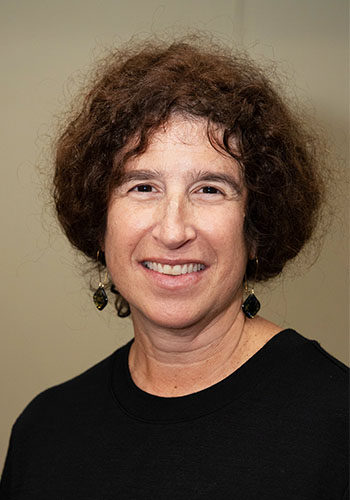Race and School Culture: Cultivating Change
This issue of Kaleidoscope brings you thoughtful impressions into how Jewish day schools and yeshivas are grappling with meaningful conversations around race and school culture including the support that Prizmah is providing schools, perspectives from school and community leaders engaged in this work, and an honest and thought-provoking first-hand experience.
The leaders of Jewish day schools have always put themselves at the forefront of social justice issues, teaching the next generation of Jewish children the Hebrew maxim Tzedek, tzedek tirdof—Justice, justice you shall pursue. These conversations are intrinsic to who we are as Jews and a sincere expression of our Jewish values.
And while our place in the global community dictates that we address racial justice issues in any form, we also recognize that a growing portion of the Jewish population are people of color, and we must do this work for those who are a part of our own communities. Jewish day school alumni themselves are calling on their schools to change how they educate their students regarding race.
This is hard work that requires one to be vulnerable, have difficult conversations and maneuver conflict. It is based on building relationships, one interaction at a time, and realizing that once you open up the floor to discuss race, broader issues of diversity, equity and inclusion are soon in the room.
Prizmah aims to create the space for schools to reflect on race and the related issues through their own school cultures while providing support and access to expertise as their journey progresses. We are fortunate to have funding partners in Crown Family Philanthropies, the Jim Joseph Foundation and Lippman Kanfer Foundation for Living Torah supporting a scope of work we launched this year through a new Prizmah program, Race and School Culture.
Over the course of five workshops, more than 100 teachers and administrators from 39 schools across the denominational spectrum came together to look at their school cultures, challenge assumptions, learn from experts and affirm a commitment to furthering this work. This synchronous experience helped leaders envision a systematic approach to school culture change. The group was introduced to Nishant Mehta’s Five Ps that comprise school culture change: philosophy, people, program, policies and practice. It was established that articulated values are easier to change than assumed shared values and group behavior norms; the latter are less visible.
The learning allowed participants to focus on where change could take place in their schools. They identified areas to hone in on now, and others that will take more time. Some will look at school policies, and some at broader community engagement; others will create professional learning communities for faculty and staff to work together on an issue identified as important for their school. In some programs, librarians and principals will work with faculty to look at reading lists and new curricular approaches. There is no one approach to this work, and Prizmah’s ongoing support will enable leaders to start at a place that is right for their culture. Regina and Andrea Lulka’s blog, “Taking a Deep Dive to Make the Implicit Explicit,” presents an example of some of the early changes taking place in schools because of this work.
When asked to reflect on this experience, 100% of the respondents expressed appreciation for being exposed to a new framework, and words such as alignment, transforming, agency and authenticity were prominent. The next step for these schools will be continuing to sensitively integrate their learning and reflections into their day to day work, given their unique communities and school cultures.
To help facilitate this work, the participating schools will continue their ongoing engagement in two ways. Opportunities for consulting with experts in the field will allow school leaders to talk about key issues for their work, specifically pertaining to the needs of their own school community. Additionally, teams from multiple schools are invited to join collaborative goal-oriented working groups to focus on specific areas of interest such as elementary school curricula, professional development and engaging stakeholders. Each of these groups will be led by an expert facilitator.
As we move forward with this work, new challenges will surface. Our school communities are representative of many different viewpoints and perspectives, and we see these reflected in how attention to this work is perceived. Within the tight-knit family of a school, difficult conversations are challenging, and this work takes time.
It is also important to understand that whereas school leaders have a strong desire to “get this right,” much of this journey will be about making mistakes along the way and growing from those opportunities. Our ability to be vulnerable will be a key aspect to allowing space for people to be heard, changes to be considered and colleagues to disagree. We will learn as much from what we get wrong as will from what we see as successes. Embrace them all with the expectation that they will both lead your community to a place of greater strength.
Prizmah is committed to being there with the schools through this messy process as we all work together to make our schools and communities environments that are safe, inclusive and kind.

Amy Wasser is Prizmah’s senior director of field advancement.


